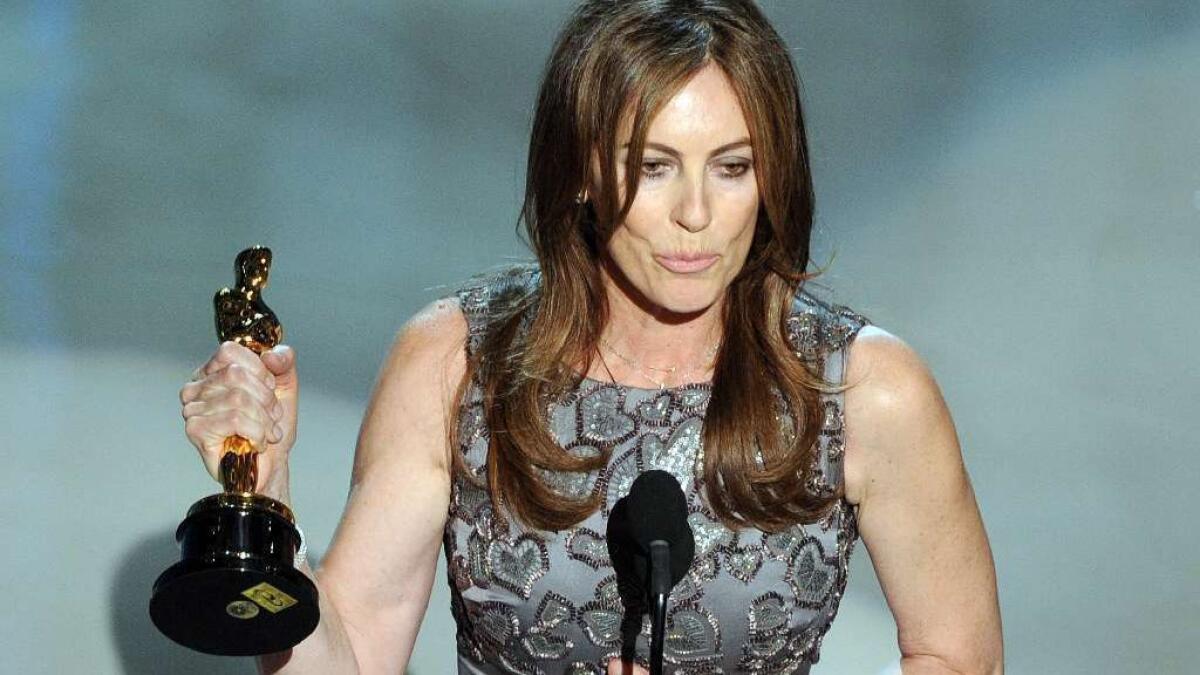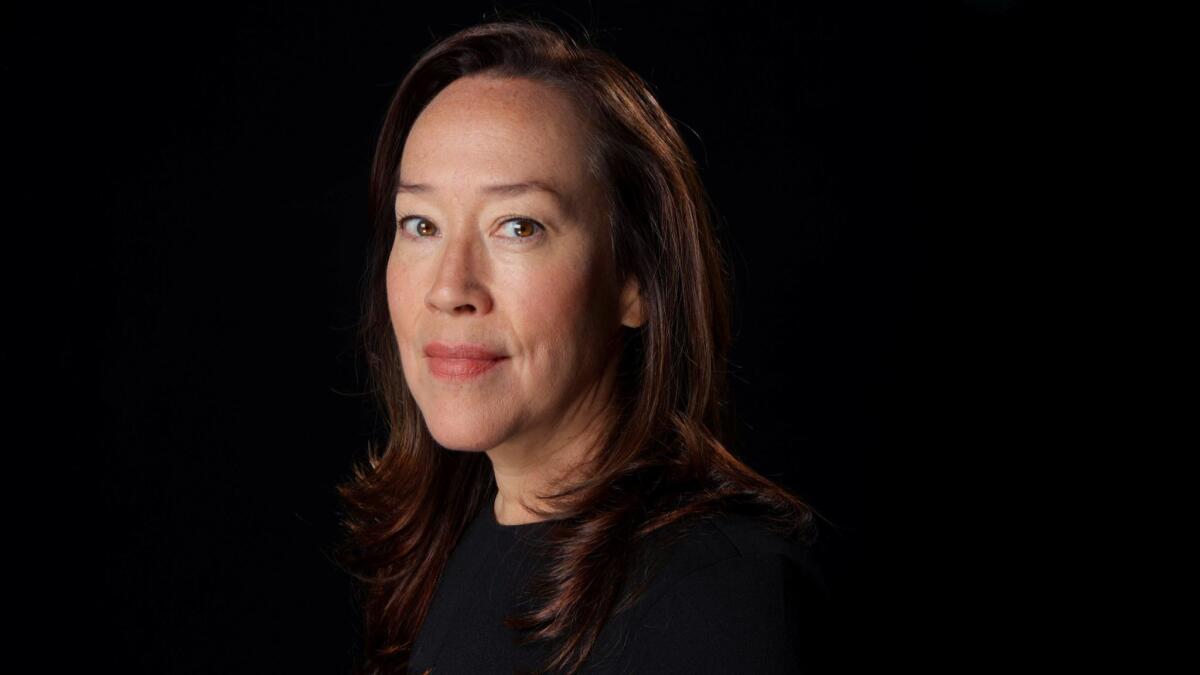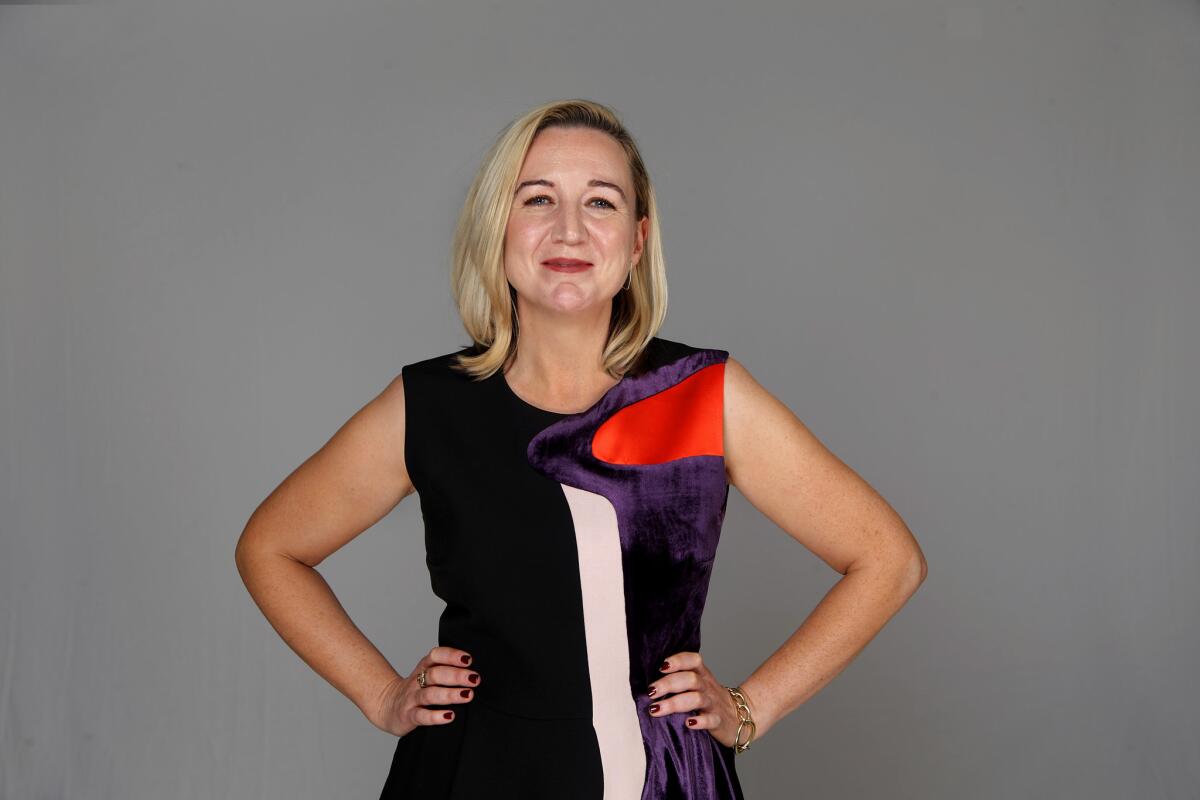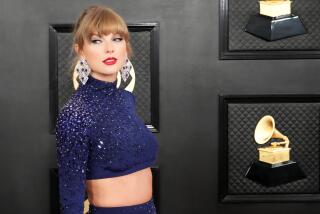For female directors, the numbers can be dispiriting, but this season there are signs of change

Change can spread like wildfire when a voice rises up to energize its momentum. At the 2018 Golden Globes, Natalie Portman lent hers, calling out the 88 members of the Hollywood Foreign Press Assn. for its best director nominations. Seven words could not have been more prophetic. “And here are the all-male nominees.”
In the 75-year history of the Golden Globes, a woman has earned a nomination for best director seven times — two of those seven were second nominations, meaning that just five different women have ever been recognized.
Of those five — Barbra Streisand (“Yentl,” “The Prince of Tides”), Jane Campion (“The Piano”), Sofia Coppola (“Lost in Translation”), Kathryn Bigelow (“The Hurt Locker,” “Zero Dark Thirty”) and Ava DuVernay (“Selma”) — Streisand stands as the lone winner, for 1983’s “Yentl.”
The Academy Awards are no different, with just five female director nominees and only a single winner: Bigelow for 2009’s “The Hurt Locker.” The gender barrier was actually broken more than four decades ago by director Lina Wertmuller for “Seven Beauties” (1976), a drama set in a WWII German prison camp. Campion, Coppola and Greta Gerwig (“Lady Bird”) round out the remaining Oscar nominees.
But this year’s Oscar conversations are looking to upend the status quo, with films from seven women making an impact.

It feels like things are changing. But when you look at the reports, it’s not encouraging.
— Karyn Kusama
“It feels like things are changing,” says Karyn Kusama, whose awards-contending Christmas release, “Destroyer,” stars Nicole Kidman as a damaged undercover cop seeking to right her own demons. “But when you look at the reports, it’s not encouraging.”
The numbers don’t lie. In 2017, of the 175 U.S.-produced films that earned at least $250,000 at the box office, only 22 of the 181 credited directors were female, according to a study released by the Directors Guild of America. The news is as dismal when compiling any box office amount. Of the 651 films analyzed by the DGA in 2017, 114 directors were women. (It’s worth noting the stats do not include documentaries or animated films.)
Kusama cautions female storytellers to not rush into projects. “It’s important to find movies that have a point of view, that speak to people. Find a mythology that hasn’t been truly explored.”
But it’s not just a matter of picking the right project. “I do think there’s a boys-club mentality,” says director Marielle Heller, whose November release “Can You Ever Forgive Me?” is on many best picture lists. “It’s an unconscious bias that happens when recognizing talent. It seems decision makers are more willing to take risks on young men over young women.”
Director Mimi Leder, whose awards season release “On the Basis of Sex” chronicles the life of Ruth Bader Ginsburg, found herself connecting to the Supreme Court justice in many ways. “I don’t compare myself to RBG, but there are a lot of similarities that I felt close to,” says Leder, who was the first female to graduate from the AFI Conservatory and has had more than 50 producing and directing credits since. “I had a lot of doors closed in my face as Ruth had, and she always stood up and kept going. Her fight against gender discrimination, her work as an educator, then moving on to become a Supreme Court justice, was something I deeply admired and was inspired by during this project.”

In the December release “Mary Queen of Scots,” the plot pinpoints the cost of power and what that means to two powerful women, Mary Stuart and Queen Elizabeth I. For director Josie Rourke, the approach was guided by her interest in female leadership over the last decade. “I have met many women in British society and America that are in positions of power and had deep conversations with them about what it means personally and professionally. Those conversations were a preoccupation of the film,” says Rourke, who was appointed as the first female artistic director to run a major theater in London.
For writer-director Debra Granik, who received the Los Angeles Film Critics Assn. best director prize last month, the magnetism of her “Leave No Trace,” an allegory that follows a homeless man — struggling with PTSD — and his daughter, was brought on by its kinship with everyday existence. “The plot doesn’t have to be big for me to be attracted to how they’re going to survive,” says the nominee for adapted screenplay for 2010’s “Winter’s Bone.” “I’m attracted to stories of how people are going to make their lives work and find ways to make them interesting.”
Independent Spirit Award nominee “The Rider” struck a similar chord for writer-director Chloé Zhao, as the film is based on the real life of Brady Jandreau, a cowboy who lost his ability to ride after a severe head injury. “There’s a masculinity and feminism in each of us. I think that’s true for Brady as a cowboy and a man and for me as a filmmaker and a woman,” says Zhao. “My experience as a woman is part of this film. It helped show Brady, who is very strong, that it’s OK to show vulnerability. That connection and collaboration played its part in how we created this film.”
In developing the Toronto International Film Festival-nominated “What They Had,” a stirring story about a family struggling over the future of an ailing mother, writer-director Elizabeth Chomko admits she would rather have left the script on her computer than have someone else direct it. “It was such a personal story I had written to preserve a memory for my family, I don’t think someone else could have done it with the love I had written it with.”
FULL COVERAGE: Awads season news and features on The Envelope »
More to Read
From the Oscars to the Emmys.
Get the Envelope newsletter for exclusive awards season coverage, behind-the-scenes stories from the Envelope podcast and columnist Glenn Whipp’s must-read analysis.
You may occasionally receive promotional content from the Los Angeles Times.






